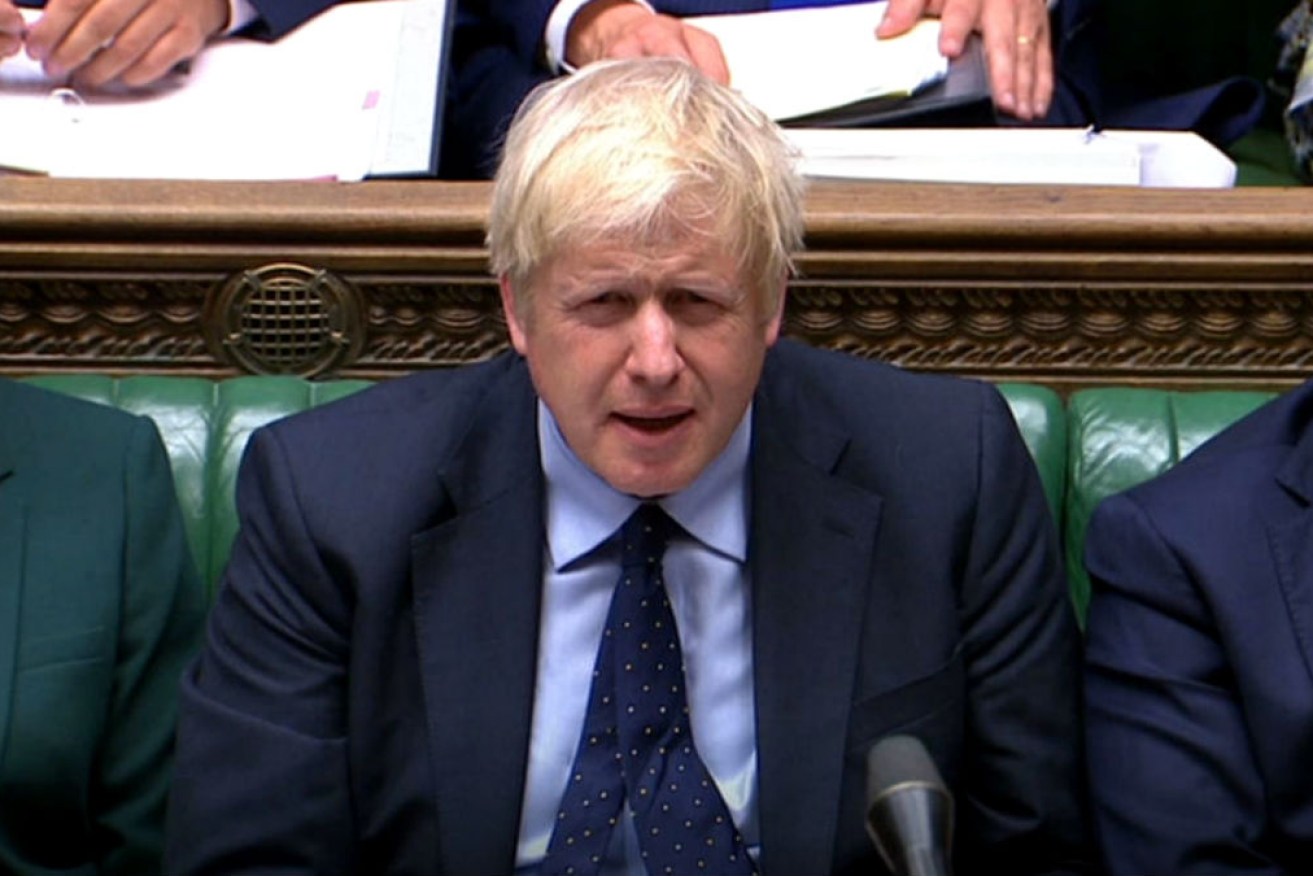‘Unlawful, void and of no effect’: Supreme Court rules Boris Johnson’s suspension of UK Parliament was unlawful


Boris Johnson is said to be making headway in eleventh-hour talks to work out a Brexit deal. Photo: UK Parliament
The Supreme Court in London has ruled that Boris Johnson’s closure of the UK Parliament was illegal.
The British Prime Minister advised Queen Elizabeth II to prorogue, or suspend, Parliament on August 28.
Lady Brenda Hale said the unanimous decision was that the suspension was “justiciable” – capable of challenge in the courts – and that the case was “about the limits on the power to advise the Queen to prorogue Parliament”.
Recognising “this was not a normal prorogation”, Lady Hale said it “prevented Parliament from carrying out its duties” in the crucial period before the October 31 Brexit deadline.
“The court is bound to conclude that the decision to advise the Queen to prorogue Parliament was unlawful,” Lady Hale said.
Outlining that Mr Johnson’s proroguing was ‘‘unlawful, void and of no effect and should be quashed’’, Lady Hale said it was up to the Speaker to decide what happens next.
UK PM Boris Johnson's decision to suspend Parliament for five weeks was unlawful, Supreme Court rules https://t.co/loqFdu2Wym
— BBC Breaking News (@BBCBreaking) September 24, 2019
Speaker of the House of Commons John Bercow said he welcomed the Supreme Court’s judgment.
“As the embodiment of our Parliamentary democracy, the House of Commons must convene without delay,” Mr Bercow said.
“To this end, I will now consult the party leaders as a matter of urgency.”
Some lawmakers, including those thrown out of Mr Johnson’s Conservative Party for rebelling against his Brexit plans, had said he should resign if he was found to have misled the queen.
British Labour leader Jeremy Corbyn called on Mr Johnson to consider his position and call a new election after the Supreme Court ruling.
“I invite Boris Johnson, in the historic words, to ‘consider his position’,” Mr Corbyn told delegates at the Labour Party’s annual conference in Brighton.
To huge cheers and chants of “Johnson out!”, Mr Corbyn said the PM should become the shortest-ever serving leader and that Labour was ready to form a government.
Labour leader Jeremy Corbyn says UK PM Boris Johnson should "consider his position", after the Supreme Court found his suspension of Parliament was unlawful
Latest: https://t.co/8Ta7VvT37Q pic.twitter.com/57LArIZMjm
— BBC Politics (@BBCPolitics) September 24, 2019
Opponents said the move to suspend Parliament was designed to thwart any challenges to Mr Johnson’s promise to take Britain out of the European Union on October 31 – with or without a divorce deal.
Mr Johnson, who took over from Theresa May on July 25, said the aim of the five-week suspension – from September 10 until October 14 – was to allow him to introduce a new legislative agenda.
Mr Johnson, who has been accused of an unlawful ‘‘abuse of power’’, is in the United States.
But those who brought legal challenges argue the prorogation is designed to prevent parliamentary scrutiny of the UK’s impending exit from the EU on October 31.
The Supreme Court heard appeals over three days arising out of separate legal challenges in England and Scotland, in which leading judges reached different conclusions.
At the High Court in London, Lord Chief Justice Lord Burnett and two other judges rejected campaigner and businesswoman Gina Miller’s challenge, finding that the prorogation was ‘‘purely political’’ and not a matter for the courts.
But in Scotland, a cross-party group of MPs and peers led by SNP MP Joanna Cherry QC won a ruling from the Inner House of the Court of Session that Johnson’s prorogation decision was unlawful because it was “motivated by the improper purpose of stymieing parliament”.
The justices were asked to determine if Johnson’s advice to the Queen was “justiciable” – capable of challenge in the courts – and, if so, whether it was lawful.
The justices had also been asked by the Westminster government to allow an appeal against the decision in Scotland.
Documents submitted to the court revealed three possible scenarios in the event the court rules the suspension was unlawful, two of which could see the prime minister make a fresh decision to prorogue parliament.
The other outcome could see the court order Parliament to be recalled.
The 11 justices in Britain’s highest court who heard the case, including Lady Hale, Lord Reed, Lord Kerr, Lord Wilson, Lord Carnwath, Lord Hodge, Lady Black, Lord Lloyd-Jones, Lady Arden, Lord Kitchin and Lord Sales, delivered the verdict on Tuesday night, Australian time.
-with AAP








